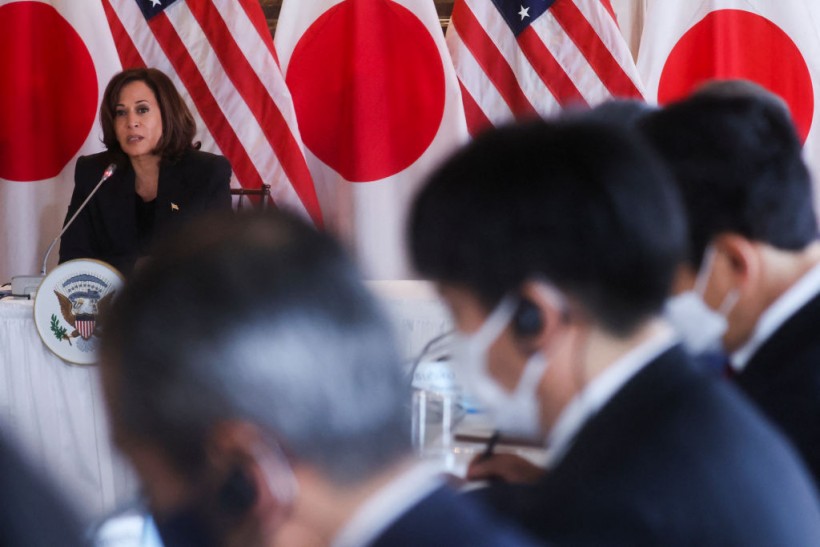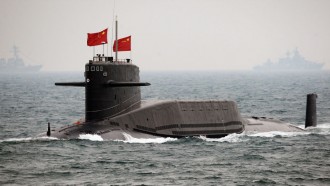The Japanese commerce minister announced on Friday, Sept. 30, that the country is pouring a huge American chipmaker with a subsidy of up to 46.6 billion yen ($322 million) to assist its plan to produce advanced memory chips in a Hiroshima factory, as reported first by the AP.
Following the United States' announcement to support Micron Technology, the visit of Vice President Kamala Harris to Japan comes as the two nations intensify their collaboration on extending production and supply chains for vital minerals.

(Photo : LEAH MILLIS/POOL/AFP via Getty Images)
US Vice President Kamala Harris (L) hosts a roundtable discussion with Japanese business executives from companies in the semiconductor industry, at the Chief Mission Residence in Tokyo on September 28, 2022.
Japan Strengthens Tech Ties with the US
According to Yasutoshi Nishimura, minister of economy and trade for Japan, the contract was approved by the government on Friday in accordance with an economic security law.
This week, Harris traveled to Asia and met with Japanese government representatives and executives from semiconductor companies to discuss how to enhance chip development and production in the face of China's expanding influence in the sector.
Harris spoke with representatives from Tokyo Electron, Nikon, Hitachi High-Tech Group, Fujitsu Ltd., and Micron, according to AP.
To counter China's own investment in computer chips, the United States is working to increase domestic semiconductor production while also striving to fortify its technological ties with Taiwan, South Korea, and Japan.
Japan has established its own fund to aid in the development of semiconductors as well. A new factory in Kumamoto, a prefecture in southern Japan, will receive subsidies of $3.3 billion out of the total amount of $4.3 billion investment.
US Bans Exporting Chips to China
This announcement comes after a new regulation that would limit the sale of computer chips needed for supercomputers and artificial intelligence to Russia and China has been proposed by the US government and is currently being implemented.
According to information provided by the government to NVIDIA, the new license stipulation will handle the possibility that Russia and China could use the impacted products for military objectives.
This move also demonstrates a significant escalation of the US's crackdown on several technological abilities of China at a time when tensions are rising over Taiwan, which is responsible for producing chips for NVidia and almost every big chip company.
According to research released by the Center for Security in Emerging Technology, or CSET, China is progressing toward its goal of becoming a global powerhouse in artificial intelligence by 2030, thanks to chips developed by U.S. companies.
Based on 97 publicly available documents of the Chinese military's procurement of AI processors, nearly all of them were created by American firms Nvidia, Xilinx (now AMD), Intel, or Microsemi, as per the researcher's findings.
The aforementioned US-designed chips, according to Defense One, are reportedly produced in huge quantities by Asian firms such as the Taiwan Semiconductor Manufacturing Company in Taiwan and Samsung in South Korea.
Related Article: US Chips Are Helping China's Military to Become an 'AI Powerhouse' - New Study Claims
This article is owned by Tech Times
Written by Joaquin Victor Tacla









